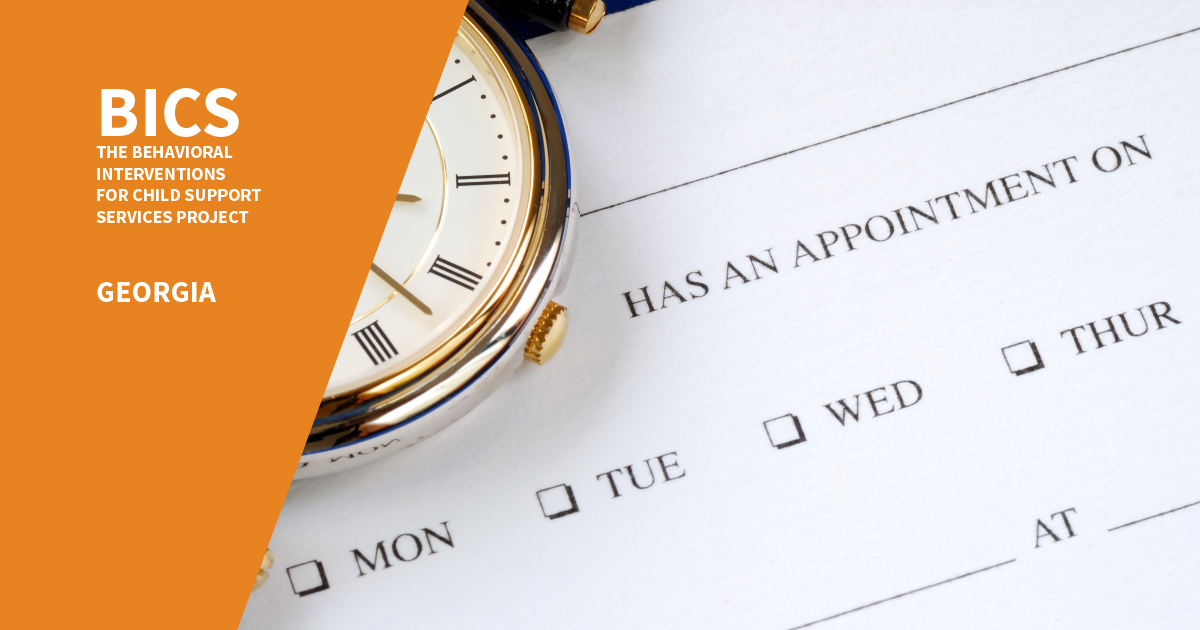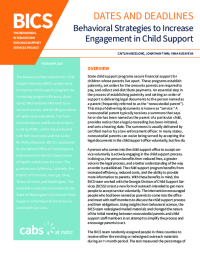Dates and Deadlines
Behavioral Strategies to Increase Engagement in Child Support

State child support programs secure financial support for children whose parents live apart. These programs establish paternity, set orders for the amounts parents are required to pay, and collect and distribute payments. An essential step in the process of establishing paternity and setting an order of support is delivering legal documents to the person named as a parent (frequently referred to as the "noncustodial parent"). This step of delivering documents is known as "service." A noncustodial parent typically receives a summons that says he or she has been named as the parent of a particular child, provides notice that a legal proceeding has been initiated, and sets a hearing date. The summons is usually delivered by certified mail or by a law enforcement officer. In many states, noncustodial parents can waive being served by accepting the legal documents in the child support office voluntarily, but few do.
A person who comes into the child support office to accept service voluntarily is actively engaging in the child support process. In doing so, the person benefits from reduced fees, a greater voice in the legal process, and a better understanding of the way an order is established. The child support program benefits from increased efficiency, reduced costs, and the ability to provide more information to parents. With these benefits in mind, the BICS team worked with the Georgia Division of Child Support Services (DCSS) to test a new form of outreach intended to get more people to accept service voluntarily. The intervention encouraged people who had been named as parents to come into the office and meet with staff members to discuss the child support process and their obligations. Using insights from behavioral science, the BICS team redesigned mailed materials and changed the nature of the initial meeting between noncustodial parents and child support staff members in an attempt to simplify the process and encourage parents to act.
The BICS team randomly assigned people in three counties to receive either the existing or redesigned outreach materials during an 11-month period. The test measured the percentage of people who visited the office to accept service, as well as longer-term outcomes related to payment that may have seen effects if the redesigned meetings improved interactions between parents and staff members.
The new outreach materials increased the number of people who came to the office to accept service voluntarily by 8.2 percentage points, from 15.1 percent of the control group to 23.3 percent of the intervention group. This difference is statistically significant and represents a 54 percent increase, and coming into the office was the primary outcome of interest to the state of Georgia. After six months, the intervention did not appear to have any statistically significant effects on other, secondary outcomes of interest, including the number of fathers whose paternity was established, the number of parents for whom child support orders were set, the amounts they were ordered to pay, or their payment behavior. Front-line staff members reported that many parents reacted positively to the study materials, finding them novel, clear, and likable.






